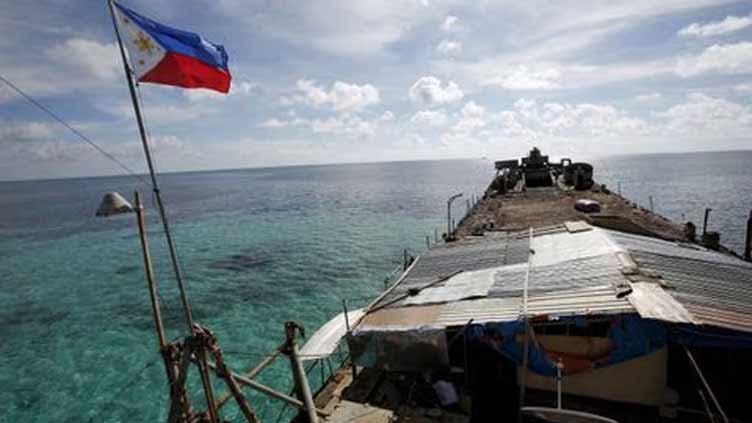China urges Philippines to end 'provocations' in South China Sea

World
The Philippines' territory is defined by a series of international treaties
BEIJING (Reuters) - China on Monday warned the Philippines against further "provocations" at an atoll in the South China Sea, saying such acts had violated Chinese territorial sovereignty, contravened international law and disrupted regional peace and stability.
The Philippines' territory is defined by a series of international treaties, and the atoll has never been part of its territory, the Chinese foreign ministry said in a strongly worded statement, referring to the atoll as Renai Reef.
In recent months, the Philippines has been sending supplies to its troops stationed on a World War Two-era, transport-ship-turned-military outpost on the Second Thomas Shoal, prompting the China Coast Guard to repeatedly deploy vessels to block the resupply missions.
China claims sovereignty over nearly the entire South China Sea, pointing to a line on its maps that cuts into the exclusive economic zones of Vietnam, the Philippines, Malaysia, Brunei and Indonesia. The Permanent Court of Arbitration in 2016 said the line on China's maps had no legal basis, which Beijing rejects.
The atoll is known as Ayungin in the Philippines, while China calls it the Renai Reef, lying 190 km (118 miles) off the Philippine island of Palawan.
"The Philippines has no legal basis at all to claim sovereignty over Renai Reef on the grounds of its comparative proximity to Philippine territory," the Chinese foreign ministry said in a statement.
Since the grounding of the BRP Sierra Madre at the atoll in 1999 in Manila's attempt to assert its sovereignty claim, China has repeatedly called on the Philippines to tow away the vessel.
"The Philippines repeatedly promised to do so as soon as possible," the Chinese ministry said.
"However, 24 years have passed, and the Philippine warship is still there. China cannot accept the Philippines' acts of going back on its words again and again and violating China’s territorial sovereignty," it said.
The Philippines must stop "making provocations" and "creating troubles" at sea, the ministry added.
China will continue to do what is necessary to firmly safeguard its territorial sovereignty and maritime rights and interests, it said.

